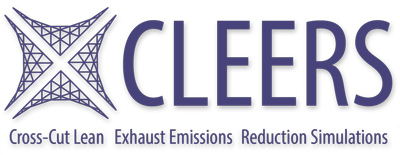Assessment Methodology for Diesel Particulate Filter Technologies
Athanasios Konstandopoulos, APT Lab, CERTH/CPERI
A fast methodology for studying DPF performance is described, addressing the following aspects: filter flow resistance behavior, size specific filtration efficiency, kinetics of filter loading and regeneration (by oxidation of the collected soot via thermal, catalytic and NO2-assisted techniques) behavior and ash particle induced aging. An extensive set of experiments, with well-defined boundary conditions has been performed employing small-scale filters evaluated in specially-built reactor-assemblies, connected in the exhaust of a modern diesel engine. The experiments are analyzed with state-of-the-art simulation tools (based on discrete as well as continuum approaches) coupling phenomena occurring over widely disparate spatial and temporal scales. The obtained results are very useful for the materials optimisation as well as for the system design, monitoring and control of modern emission control systems.

